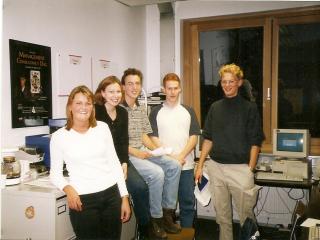Competition in the labor market, education, and healthcare often leads to the erosion of societal values
Competition in the labor market, healthcare, and education is commonplace in the Netherlands, but the question arises whether it is desirable to distribute scarce resources within these domains in a competitive manner. This is the assertion of newly graduated philosopher Yvette Drissen. She warns that even if competition is organized fairly, it can come at the expense of our societal values and may lead to corruption, alienation, opportunistic, psychological, and emotional costs.
"In my environment, I noticed that ambitions and criteria for getting a job were continually raised everywhere, both by employers and employees. During my philosophy master's, I was part of a UNICEF student team that fundraised for charity. Besides their studies, others also pursued additional education. Because having just one degree is no longer sufficient to compete. For example, for a traineeship at the European Commission, having just one bachelor's degree and speaking at least two languages is not enough anymore, as everyone already does that. Nowadays, applicants even have two completed master's degrees.
As the bar keeps getting higher, people also experience more stress. It's sometimes said: you put that pressure on yourself. But that's not true; it's not about you or me. To have a chance in the labor market, you have to participate, so it has nothing to do with you."
The distribution of scarce goods within the academic world
"Competition is strongest when a large number of people want to obtain a limited number of scarce goods, such as that coveted job. And then these goods are allocated based on how someone ranks. In my dissertation, I researched the distribution of scarce goods within the academic world, such as scholarships and permanent contracts. For instance, the success rate for many scholarship applications is around 10 to 15 percent. Very low, and whether you get a permanent job depends on whether you receive a scholarship."
-

Yvette Drissen
Postdoctoral researcherYvette Drissen works as a postdoctoral researcher at the Academic Collaborative Center for an Inclusive Labor Market of Tilburg University.
The role of competition as a societal phenomenon
"For my philosophy study, I completed my bachelor's degree in social psychology, but I felt that it was too focused on the individual and how they can be supported in integrating into society. I wanted to zoom out more and take a critical look at society as a whole and where it goes wrong. I wanted to further examine the role of competition as a societal phenomenon and see if and how it alienates people from each other and influences our self-image. I did this through conceptual analysis; examining what the concept exactly means, what definitions have been given, and what positions have been taken in the literature. In addition, I also conducted normative analysis; systematically evaluating social institutions, including how they distribute scarce goods. So, a philosopher investigates differently from a scientist who collects data."
The danger is once again that people constantly measure themselves against each other. And institutions reinforce that attitude. It leads to performance pressure, stress, diminished self-esteem, and fear, and it harms our relationships.
Competition brings about corruption and costs
"By corruption, I mean that if we focus too much on obtaining money, status, and fame, it also comes at the expense of what I call 'internal goods': things we intrinsically value about those activities themselves. For example, if we focus too much on winning scholarships and prizes instead of desiring to find truth and become wiser. Or for example, in painting: the attention and time required to actually improve can be corrupted by the speed to finish something just to sell it afterward. The danger is once again that people constantly measure themselves against each other. And institutions reinforce that attitude. It leads to performance pressure, stress, diminished self-esteem, and fear, and it harms our relationships."
Collaboration should be more central
"With my points, I'm not saying that I'm against competition in general, but I am critical of the thoughtless way competition is introduced in the workplace, for example. We need to reflect on that better. Scarce goods can sometimes be organized differently. For instance, a lottery system could be adopted when it comes to awarding scholarships, under proposals that meet minimum quality requirements. Why have additional procedures that take up a lot of time for everyone? And you can question some admission requirements: is a third master's degree necessary at the European Commission to do the work well? Collaboration should be more central, rather than individuals having to stand out above others.
My message is: we need to consider whether competition is always necessary and if we introduce it, how we organize it, taking into account the problems it causes and minimizing its consequences."
Also in Tilburg University Magazine
Date of publication: 2 April 2024



